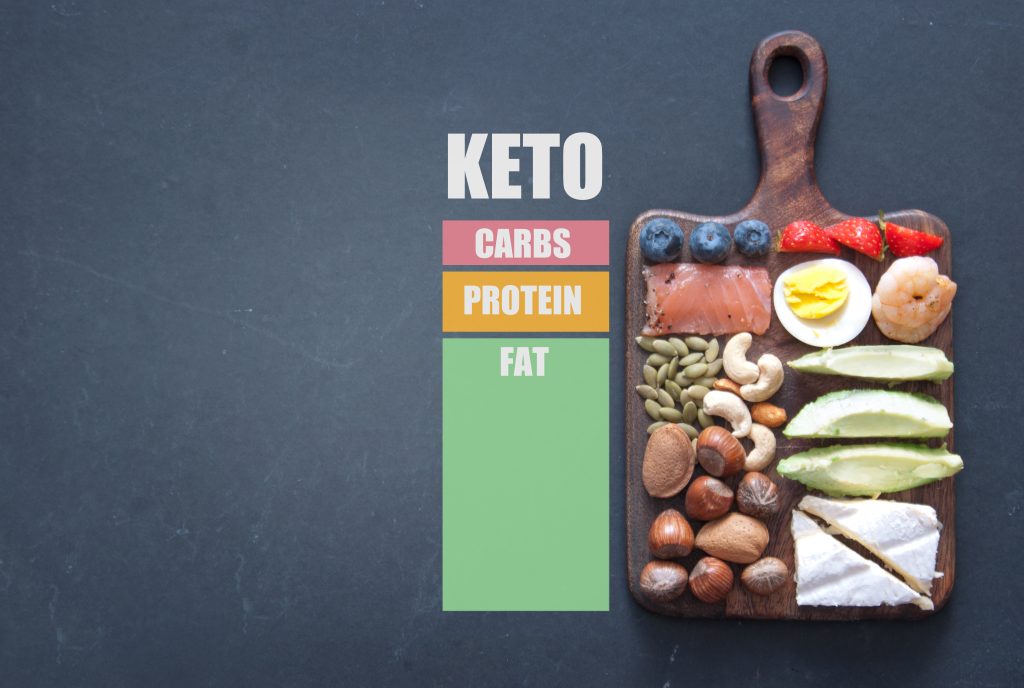The keto diet is a low-carb, high-fat diet that has been gaining popularity in recent years. It has been shown to have numerous health benefits, including weight loss, improved blood sugar control, and reduced inflammation.
The keto diet works by drastically reducing your carbohydrate intake and replacing it with fat, which then becomes the main source of energy for your body. This puts your body into a state of ketosis, which is when your body starts to burn fat for energy instead of carbohydrates.

One of the biggest benefits of the keto diet is weight loss. By reducing your carbohydrate intake, your body is forced to burn fat for energy, which can lead to significant weight loss. Additionally, research has shown that the keto diet can help reduce appetite, making it easier to stick to a healthy diet.
The keto diet can also help improve blood sugar control. Studies have found that the keto diet can help lower blood sugar levels and reduce the risk of type 2 diabetes. Additionally, the keto diet has been shown to reduce triglyceride levels, which can help reduce the risk of heart disease.
In addition to weight loss and improved blood sugar control, the keto diet may also reduce inflammation. Studies have found that the keto diet can help reduce inflammation throughout the body, which can help reduce the risk of chronic diseases such as arthritis and Alzheimer’s disease.
Overall, the keto diet can offer numerous health benefits for those looking to lose weight, improve blood sugar control, and reduce inflammation. However, it is important to speak with your doctor before starting any new diet or exercise program.
Some potential benefits of keto

1. Increased Weight Loss: The ketogenic diet is an effective way to lose weight and reduce body fat.
2. Improved Insulin Sensitivity: The ketogenic diet can improve insulin sensitivity, helping to manage type 2 diabetes.
3. Increased Mental Focus: The ketogenic diet can improve mental focus and concentration.
4. Reduced Risk of Heart Disease: The ketogenic diet can reduce the risk of heart disease by improving cholesterol levels.
5. Improved Cognitive Function: The ketogenic diet can improve cognitive function, including memory, focus, and concentration.
Some potential risks of keto
1. Dehydration: Because the keto diet is very low in carbohydrates, it can cause dehydration due to the body not having enough glucose to use for energy.
2. Nutrient Deficiencies: The keto diet is very low in certain vitamins and minerals, such as Vitamin C, Vitamin D, and magnesium, which can lead to nutrient deficiencies.
3. Constipation: Due to the low fiber content of the keto diet, constipation can be a problem for some people.
4. Kidney Stones: The keto diet can lead to an increase in calcium in the urine, which can lead to an increased risk of developing kidney stones.
Resources related to keto
1. KetoDiet App: https://ketodietapp.com/
2. The KetoDiet Blog: https://ketodietblog.com/
3. The Diet Doctor: https://www.dietdoctor.com/low-carb/keto
4. Ruled.me: https://www.ruled.me/
5. KetoVale: https://www.ketovale.com/
6. Keto Summit: https://ketosummit.com/
7. Keto Connect: https://www.ketoconnect.net/
8. Low Carb Yum: https://lowcarbyum.com/
